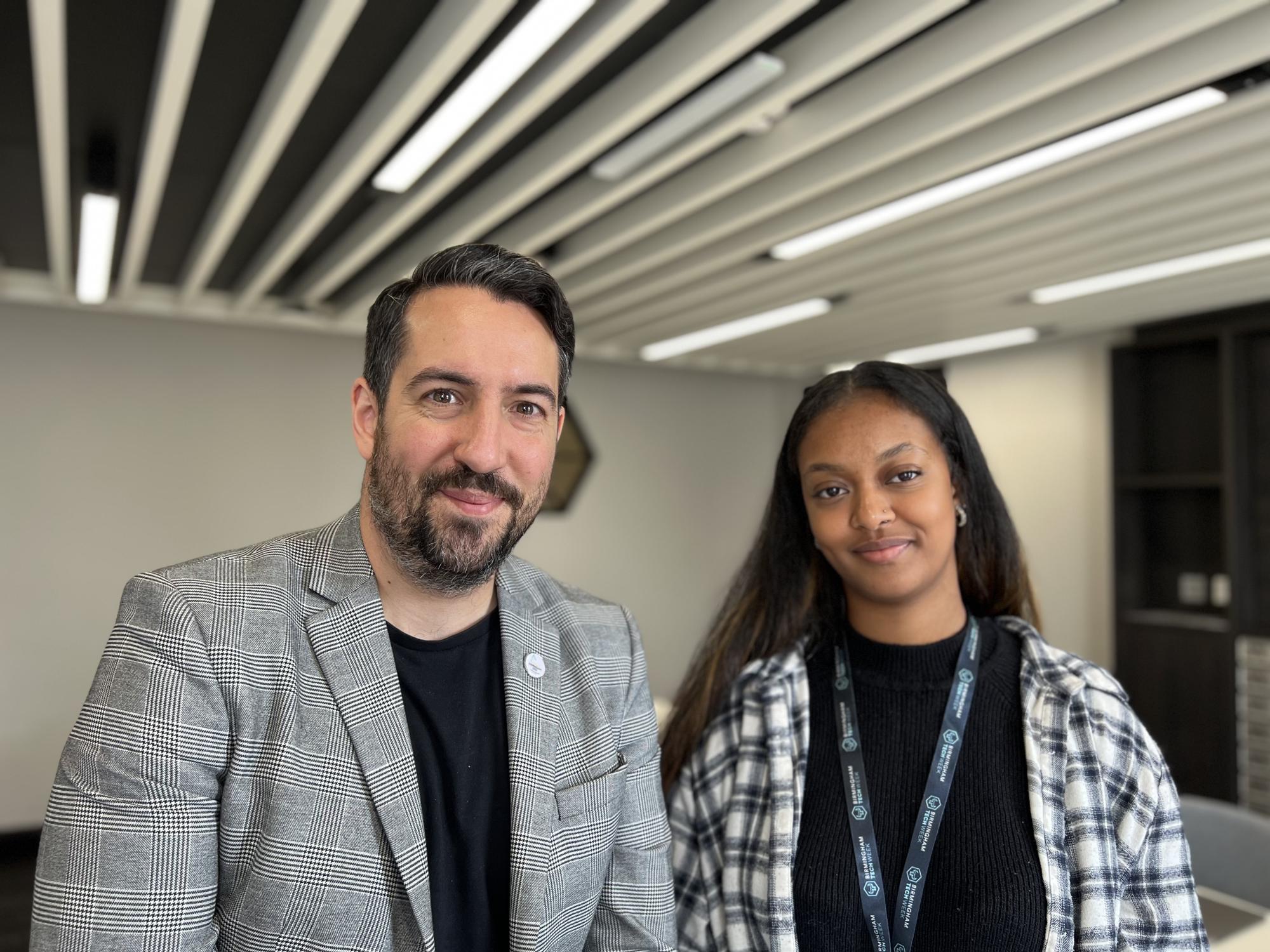University of Birmingham student, Viola Kahsay, took the opportunity to talk with Yiannis Maos about the region’s growing tech sector and digital inclusion.

Yiannis Maos, spoke with us about the digital skills divide, as well as how organisations in the region are tackling these issues as part of the region’s growing global tech hub.
Digital Illiteracy as an Epidemic
The growing divide between the digitally literate and illiterate is not only detrimental to individuals, but also to the wider economy. £63 million is lost each year due to the digital skills gap and this is even more of a pressing issue in the West Midlands as Maos highlighted that the region is “the fastest growing tech sector in the UK”. According to the Department for Digital, Culture, Media and Sport, the region’s tech sector could add £2.7 billion to the economy by 2025, enabling 52,000 jobs. With the sector now valued at £15 billion across the region, Maos commented on the importance of tackling digital illiteracy in young people, and how it must be included in the education system from as early an age as possible:
“I think that we need to rethink education and how digital goes across the curriculum to really make sure that every child at least has a base knowledge into digital…You can work in tech but specialise in marketing, operations, sales, or logistics, and actually still have those analytical skills that allow you to thrive in your career – that is the kind of digital skills I want to see across the board put into education.”
Incorporating digital skills into the education system and supporting equality in access to tech careers will help to bridge the gap between different demographics in the region, as certain demographics take up tech roles at a significantly lower rate. This inequality must be tackled across education – from primary education to higher education.
Higher Education institutions have the platform and resources required to help equip the future workforce with the necessary skills required to bridge the growing divide. In relation to the University of Birmingham’s significant contribution to Tech Week 2022, Maos commented:
“Higher Education has the ability to convene, and has the resources…that can actually lead the way when it comes to technology…It’s hugely important that universities take a leadership role on this, and it’s why it’s great to see The University of Birmingham deliver and develop the Birmingham Digital Futures programme”
The Future Workforce
Birmingham and the West Midlands are international tech hubs and must start developing the regional talent available to facilitate this exponential growth. Improving digital skills regionally will positively impact every industry going forward. Maos touched on this when discussing the future workforce of the West Midlands:
“Organisations of all shapes and sizes are going to need those skills whether they know it or not yet. Even a coffee shop is a digital company now, as they are going to need knowledge of their customers through data and analytics…and how to engage customers in a better way to improve that customer experience. So, the rallying call is every business needs to look at [how they are] acquiring, attracting, and developing that talent within their organisations”
The social benefits of developing digital skills in all young people are huge. Removing perceived barriers to tech careers and encouraging those from underrepresented demographics to apply has enormous economic benefits and can change the trajectories of people living in more deprived areas. Maos mentioned the importance of initiatives like BlackCodHer in supporting those underrepresented demographics:
“Niyo run the BlackCodHer bootcamps and get black women into tech…they’ve really kind of honed down into the biggest divide when it comes to digital skills – there are no black women in tech! So, they are working really hard together to make sure that those underrepresented groups get into technology.”
How Businesses Engage
Birmingham Tech exists to connect and amplify this movement towards increasing digital literacy across the region to the wider tech ecosystem. Just as institutions like the University of Birmingham work alongside tech businesses to bridge the gap, all companies must include the development of digital skills in their ethos, and actively work to improve the diversity of talent they are incorporating into their businesses. As Maos says:
“Whether you are a tech business or not, lean in, understand more, and be part of the group of us that are trying to benefit the West Midlands, but also narrow that digital skills gap as a consequence.”
The original article was posted on the University of Birmingham’s website (30th November 2022) and can be found here
